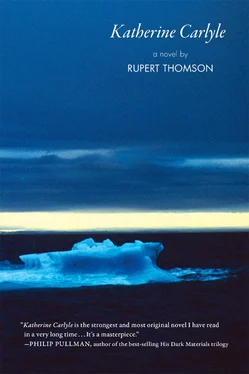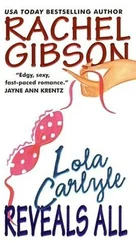“We will see,” he says.
As I leave the bar a few minutes later, the woman who handed me my key on my first night emerges from the double doors on the far side of the entrance hall. On the spur of the moment I ask if I can change rooms. Move to the front of the building. The woman’s lower lip sticks out, like someone who is sulking or feeling rebellious, and her eyes drift sideways and downwards, fixing once again on the space a child would occupy if I had one with me.
“No,” she says, then rattles off a couple of sentences in Russian.
“No?” I say.
“No.”
This is such a perfect snapshot of the Russia I have heard about that I can’t help smiling. After all, as we both know, the hotel has three floors and I’m virtually the only guest. But she says nothing else, only pushes past me, into the bar. Climbing the stairs, I feel hard done by. I’d like to be able to look out over the town and watch the snow-covered mountains in the distance change color. Later, though, I realize she was right to turn down my request. For a few moments I forgot why I came to this place, and it was her job to remind me.
I’m not a tourist.
I’m not here for the views.
/
As I hesitate at the entrance to the hospital, Anatoly appears, wearing a white coat over his faded jeans. There is nobody on duty in reception. I follow him down an empty corridor and into what he calls his “cabinet,” where he has an electric kettle, a sink, and a desk with a phone and a computer.
He indicates the phone. “Direct line to Moscow.”
I’m not sure if he’s showing off or trying to be funny.
“Kharashó,” I say. Very good.
He walks to the cupboard in the corner and returns with a tray heaped with bunches of keys.
“Let’s go,” he says.
Like the hotel across the road, the hospital feels recently completed or refurbished. The walls and ceilings have been freshly decorated — eggshell blue, lilac, pale green — and the floors are spotless. But there are no patients, no nurses. The rooms’ only occupants are pieces of furniture and medical equipment, all seemingly brand-new. I suddenly remember somebody in Longyearbyen telling me that Putin visited the settlement not long ago, under pressure from the Norwegian government, and that he was so appalled by the conditions that he promised immediate and substantial investment. What arrived, a few months later, was a shipment of paint.
On the first floor Anatoly shows me into a room that contains nothing except a large machine, and Klaus Frings comes to mind, Klaus Frings in his luxury apartment. I bear him no grudges. On the contrary, I hope he finds someone who shares his passion for Tchaikovsky and Heinrich Heine, someone whose beauty will not disempower him.
Anatoly rests a hand on the machine. “For sterilizing clothes. Very expensive. Same price as a car.”
We leave one empty room and enter another. A desk stands by the window.
“No chair,” I say.
Anatoly smiles.
I’m beginning to feel complicit in a fiction of his own inventing. It’s as if the sole purpose of the tour is to have me authenticate an enterprise that doesn’t actually exist. But then I remember that it was my idea.
The only time we encounter any people is when he opens a door at the far end of the building. Enveloped in a swirling mist of fumes are two men wielding brushes, rollers, and trays of paint. A third man, dressed in a black fur hat and overalls, sits in a half-built shower, smoking. Russian folk music hammers out of a ghetto blaster wrapped in see-through plastic. The man in the hat looks at me steadily. Nobody speaks.
“The alcoholic department,” Anatoly says as we back out of the room, and this time it’s clear that he is joking.
Later, in his “cabinet,” I ask if I’m allowed to use the local sports facilities. I would like to start swimming again, I tell him. He says I’ll need a certificate of health from a doctor.
“Then I’ve come to the right place.” I give him a bright smile.
“Yes,” he says, “but you are young. It will not be necessary to examine you — or …” Something about the way he leaves the sentence dangling unnerves me.
I move past him, to the window. The snow blowing off the hotel roof is fine as smoke.
“You have health problems?” he says, almost hopefully.
“No.”
Perhaps I was too eager when he first spoke to me. Perhaps he mistook my curiosity about the settlement for an interest in him — and then I asked if I could see the hospital, his hospital.
He mutters to himself in Russian, then takes a seat in front of the computer. As he clicks and scrolls, he tells me that the water in the pool comes from “the lake.” I should be careful not to swallow it. He prints out a single sheet of paper, signs it, and hands it to me.
“Soon I will be leaving,” he says.
This second reference to his imminent departure feels loaded, and his gaze lingers on me, hangdog and oddly ravenous. I thank him for the tour and the certificate, then I return to my hotel. I hoped he would be a source of information, a kind of guide, even perhaps a friend, but from now on it will be difficult to talk to him or learn from him. It might be wiser, in fact, to avoid him altogether. Though he has put me in an awkward position I still feel for him, and will go on feeling for him, even after he has left for Moscow or wherever it is that he’s going, and I know that when I think of him in the weeks and months that lie ahead I will picture him standing beside that machine for sterilizing clothes, as if posing for a photograph, the run-down sickly employee with his red-rimmed eyes and his faded jeans, about to be reassigned, and the expensive, superbly engineered piece of medical equipment, recently installed and still unused.
/
October is drawing to a close, and it’s only light between eleven in the morning and three in the afternoon. If the skies are clear, sunrise merges into sunset, the transition so gradual and smooth that it’s hard to tell them apart. On cloudy days there’s a glow that is spectral and diffuse, as if an eclipse is happening. It’s during these elusive dreamlike hours that I map the town — its streets and buildings, its footpaths, its forgotten spaces. I often walk out along the straight paved road that heads due west. Beyond the warehouses, with their hoards of sawdust, tiles, and cement, is a monument that harks back to the Soviet era, a tall, tapering concrete obelisk topped with a faded silver star. Nearby is a sign that says UGOLGRAD, a red line drawn diagonally through the name to indicate that you are leaving. But no one ever leaves, not unless they’re going to the heliport. The road doesn’t lead anywhere else. If you want to go to Longyearbyen — and for years, during the Cold War, the Russians weren’t welcome there — you have to go by boat. Overland, the only option is a snow scooter, but it isn’t advisable until January, when the snow is hard and packed and the darkness begins to ease, and then only with someone who is familiar with the terrain. I lean against the sign, my face turned to the south. Across the water the mountains loom, their flanks a milky lilac white, like yogurt flavored with forest fruits. It looks ethereal over there, difficult to believe in, like an imaginary kingdom.
With two days to go until Axelsen arrives, I decide to embark on a series of drawings of derelict properties, beginning with the pink house that stands close to the shoreline, to the west of the steps that lead down to the quay. To reach the house I have to climb down off the steps and onto a frail wooden walkway that cuts sideways across the slope and over a gulley. If the walkway gives I will drop three or four meters to the steeply sloping ground below. I could break an ankle, or even a leg, and end up in that creepy hospital, with only Anatoly to care for me. Ignoring the handrail, which looks as though it has rotted clean through, I hurry across the thin buckled planks and step onto the equally fragile moss-encrusted veranda. The front door is padlocked. I look around, making sure no one is watching, then climb through an open window at the side. I check my watch. Just after twelve. Three hours of daylight left.
Читать дальше












